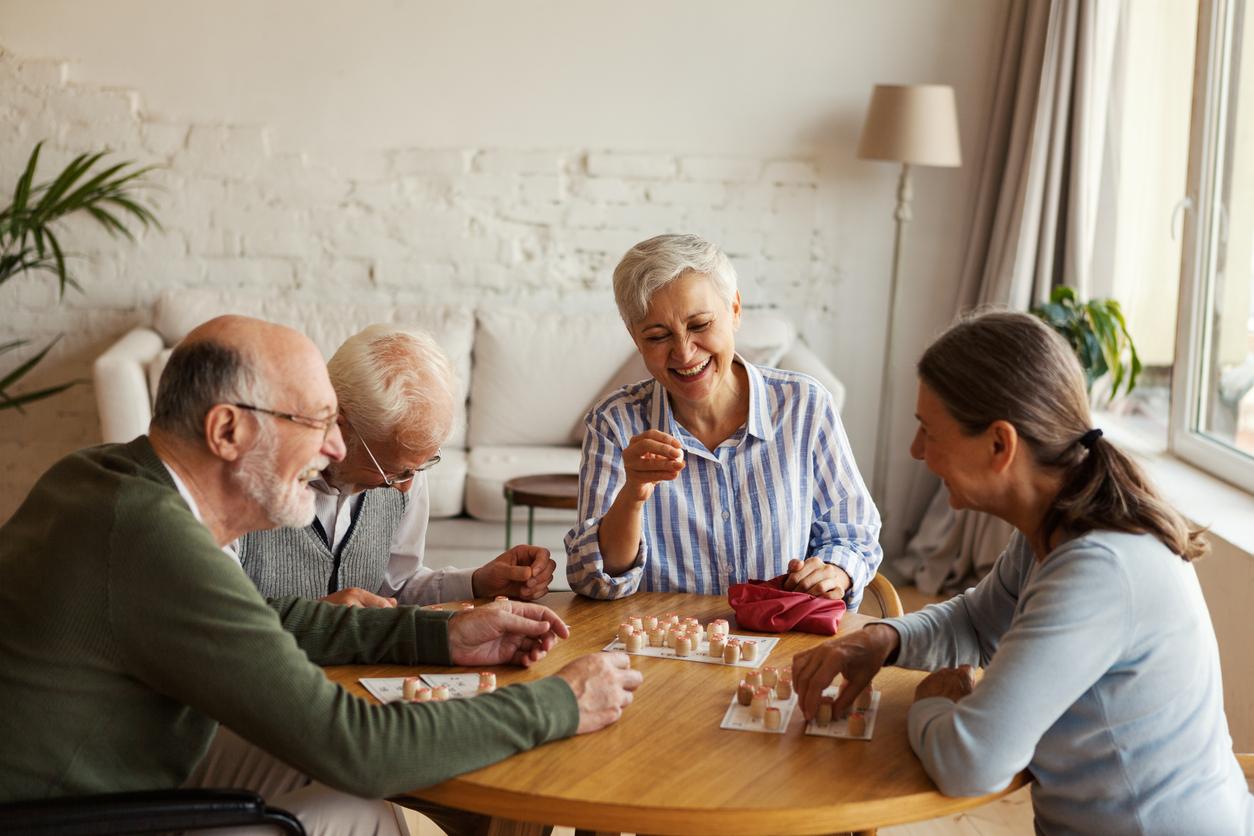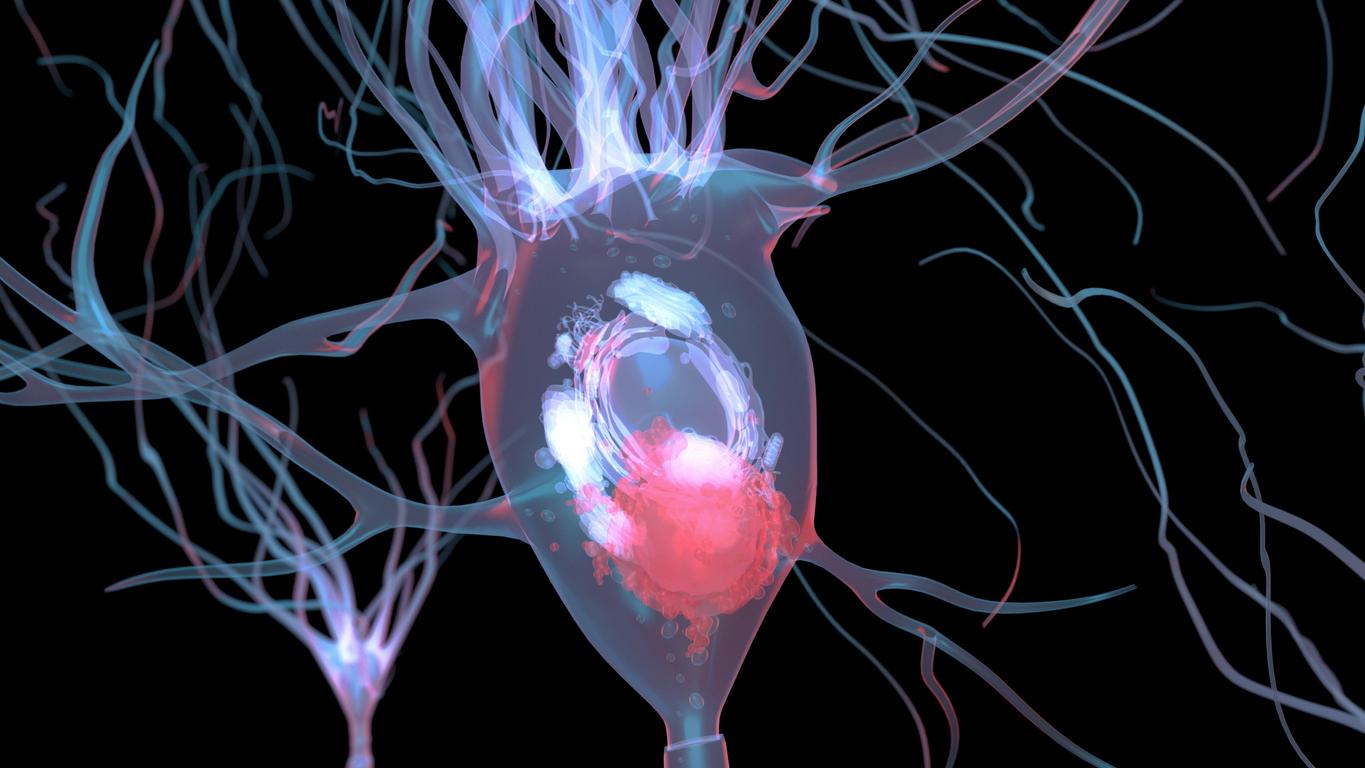From June 11, the Alzheimer Village of Dax, in the Landes, will welcome its first patients. This is the first initiative of its kind in France. For Stéphane Epelbaum, specialist in pathology, this is a “necessary innovation in the current context since the disease is both very common and incurable.”

- The first Village dedicated to Alzheimer’s patients will open its doors in France, in Dax, in the Landes.
- The objective is to maintain the patient’s daily benchmarks as much as possible and to create social ties.
- In addition to caregivers, 120 volunteers trained in Alzheimer’s will take care of patients.
“A very nice initiative”. After two years of work and an opening postponed for a few months due to the coronavirus health crisis, the Alzheimer village of Dax, in the Landes, is finally ready to open its doors. From June 11, the place entirely dedicated to welcoming people with the disease, will receive the first of its 120 patients. This is the first initiative of its kind in France. “I hope she will be successful,” comment on it Dr Stephane Epelbaum, neurologist specializing in the diagnosis and management of diseases with cognitive or behavioral expression, with Pourquoi doctor. For him, it is indeed a “innovation necessary in the current context since the disease is both very common and incurable.”
The Landes Alzheimer Village was designed as a real village in the region and is organized into four districts comprising four households of 300 square meters. Each of them will have the capacity to collect seven to eight patients, free of their movements, is it explained on the website of the project. Equipped with a café-restaurant, a performance hall, a grocery store and a hairdressing salon, its aim is to allow patients to continue their daily lives in optimal conditions.
“The Village Landais Alzheimer develops support centered on the person and non-drug approaches, driven by an attitude and therapeutic activities to best preserve the cognitive and practical abilities of residents., is it detailed. Thus, the stated objective is to maintain the daily benchmarks of patients as much as possible and to create social ties, in particular thanks to the involvement of 120 volunteers specially trained in Alzheimer’s, in addition to the 120 caregivers.
“Volunteers will be able to carry out their activities in the Village, in the open air (petanque court, pleasure garden, mini-farm, vegetable garden) or indoors (media library, auditorium, gym, restaurant, households, etc.) , but also in the Dacquoise agglomeration by accompanying residents on outings, to outdoor events (matches, Landes races, plays, etc.). The Village will be a real living space thanks to them”says the site.
Very socially isolated patients
“It is an initiative that has the merit of being united. It relies heavily on volunteers. I know that there is special attention in order to find common points between the residents so that there is a social life which settles in spite of the diseasedevelops Stéphane Epelbaum. We, specialists in Alzheimer’s disease, are grateful to the people who are working on innovative and different approaches to care for these patients, especially those for whom the disease has progressed, by putting in the first line the optimization of the quality of life despite pathology.”
“These are patients who are already very socially isolated, who do not see many people and, when they have fairly advanced Alzheimer’s disease, the classic outside world becomes dangerous, either because there are roads to cross and ‘they can be hit by a car because they are no longer aware of their surroundings, or because people want to take advantage of their weak situation. Also, having a suitable environment, dedicated to these people seems to me a good idea”he insists.
However, the social life of the establishment should take a little longer than expected to set up, due to the health crisis. Thus, access to a vegetable garden and cooking classes will have to wait a little bit. In addition, while the first patients were to arrive in April, their admission will be spread over the whole month of June so that they can be tested before and their families do not cross paths. Caregivers and staff had to observe quarantine before entering the site. As for the volunteer outside contributors, they will have to wait until September before being able to join the Village.
Study the integration of patients over time
This project cost 29 million euros. It was financed by the State and local authorities and is inspired by a similar initiative set up in Weesp, near Amsterdam, in the Netherlands. However, beyond contenting itself with caring for Alzheimer’s patients, the Village also aims to become “a resource center for medical and therapeutic research”, explains Paul Carrère, vice-president of the Landes departmental council in charge of solidarity at AFP. “Several evaluation studies will be carried out in order to measure the exemplarity and the effectiveness of this innovative mode of care. A study will also focus on the influence of new technologies and new forms of rehabilitation of cognitive loss”he continues.
“Like all innovative approaches, this Village will have to be appreciated over timebelieves Stéphane Epelbaum. It will take a study of the integration of patients over time and not just say that this is a silver bullet. It will have to be assessed over time, but, a priori, if we analyze what has happened in other countries such as the Netherlands, where this type of village exists, I think it should work by providing added value for patients”concludes the specialist.
Alzheimer’s disease is the leading cause of age-related dementia worldwide. This neurodegenerative pathology is most often characterized by memory problems. Other brain functions are then affected and, little by little, daily tasks become more and more difficult and adapting to new situations almost impossible. In France, at present, 900,000 people are affected by the disease. But with 225,000 new cases every year, the number of patients should exceed two million within twenty years.

.

















